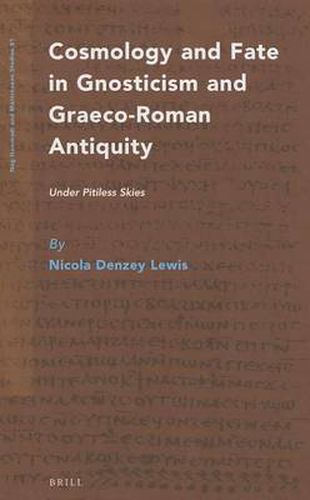Readings Newsletter
Become a Readings Member to make your shopping experience even easier.
Sign in or sign up for free!
You’re not far away from qualifying for FREE standard shipping within Australia
You’ve qualified for FREE standard shipping within Australia
The cart is loading…






In Cosmology and Fate in Gnosticism and Graeco-Roman Antiquity, Nicola Denzey Lewis dismisses Hans Jonas’ mischaracterization of second-century Gnosticism as a philosophically-oriented religious movement built on the perception of the cosmos as negative or enslaving. A focused study on the concept of astrological fate in Gnostic writings including the Apocryphon of John, the recently-discovered Gospel of Judas, Trimorphic Protennoia, and the Pistis Sophia, this book reexamines their language of enslavement to fate (Gk: heimarmene) from its origins in Greek Stoicism, its deployment by the apostle Paul, to its later use by a variety of second-century intellectuals (both Christian and non-Christian). Denzey Lewis thus offers an informed and revisionist conceptual map of the ancient cosmos, its influence, and all those who claimed to be free of its potentially pernicious effects.
$9.00 standard shipping within Australia
FREE standard shipping within Australia for orders over $100.00
Express & International shipping calculated at checkout
In Cosmology and Fate in Gnosticism and Graeco-Roman Antiquity, Nicola Denzey Lewis dismisses Hans Jonas’ mischaracterization of second-century Gnosticism as a philosophically-oriented religious movement built on the perception of the cosmos as negative or enslaving. A focused study on the concept of astrological fate in Gnostic writings including the Apocryphon of John, the recently-discovered Gospel of Judas, Trimorphic Protennoia, and the Pistis Sophia, this book reexamines their language of enslavement to fate (Gk: heimarmene) from its origins in Greek Stoicism, its deployment by the apostle Paul, to its later use by a variety of second-century intellectuals (both Christian and non-Christian). Denzey Lewis thus offers an informed and revisionist conceptual map of the ancient cosmos, its influence, and all those who claimed to be free of its potentially pernicious effects.